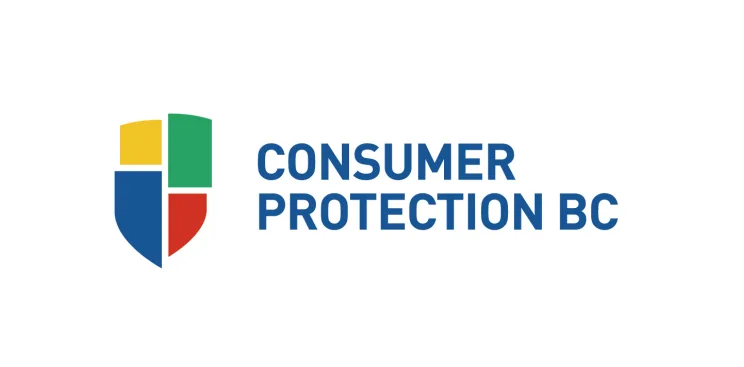Cancelling or breaking a contract

You can sometimes get out of a contract, whether it’s in writing or not. But not always. Let’s look at your rights in some common situations involving contracts.
What you should know
If the other party to a contract doesn’t do what they promised (say, sell you a working bicycle), or if you don’t deliver as promised (like you fail to show up to teach the music lesson), that’s a breach of contract, unless an exception applies like the ones explained below.
When someone breaches a contract, a handful of remedies are available.
Let’s say you bought that bike. On your first long ride, the frame breaks. The law offers these potential solutions:
The contract is cancelled. You return the bike and get a refund.
You’re awarded compensation, known in law as damages. The seller pays for repairs to the bike — and if you broke your leg when the frame broke and you crashed, you may be entitled to compensation for that too.
The seller is ordered to perform the contract. In other words, they have to provide you with a working bike.
If what went wrong was essential to the purchase (that broken frame), you’re entitled to cancel the contract. If it wasn’t essential (a squeaky wheel), you’re likely entitled to a partial refund, but you can’t return the bike.
If a contract is cancelled, it’s as if it never happened. Both parties go back to where they started. The seller gets the broken bike back, and you get your money back.
If it isn’t cancelled, then the contract remains in place, but certain parts change. You could, for example, get a partial refund.
The law requires a baseline level of quality in the things you buy. This is what’s called the legal warranty. If you buy from a business, the product has to:
be fit for the purpose you bought it for
be of merchantable quality (it has to work and can’t be damaged)
be durable for a reasonable period of time
match the description of the goods
If any of these conditions aren’t met, you’re entitled to cancel the contract. But act immediately if you want to do so. If you wait, it’s harder to prove the defect isn’t just normal wear and tear — especially if you used the item after discovering the problem.
If a seller talks you into a contract by telling you something that turns out not to be true, you may be able to cancel the contract. This is called misrepresentation.
If the seller misrepresented something essential (they said they would dog sit for a day, but only did it for an hour) you may be entitled to a full refund. If it was about something non-essential (they said the car they sold you gets 30 kms per litre, but really it gets 20 kms per litre), you’re likely entitled to some compensation, but you can’t cancel the contract.
A cooling-off period means a stretch of time, after the purchase, during which you can return a product or stop a service, no questions asked. You can cancel without giving a reason.
Not every purchase features a cooling-off period. It's available in some situations but not others. And the length of the cooling-off period varies depending on what you’re buying.
For example:
When you buy something in person, but not at the business location (like a door-to-door sale), you have a cooling-off period of 10 days after you receive a copy of the contract.
When you receive services on an ongoing basis (like a yoga or gym pass), you have a cooling-off period of 10 days after you receive a copy of the contract.
When signing a cellphone contract, you have a cooling-off period of 15 days after your cellphone service begins.
When leasing a car, you have one full day after you sign to reconsider.
When you buy a new home, you have three business days to cancel the contract (although you’ll have to pay a cancellation fee to the seller of 0.25% of the contract price).
If you buy a newly built condo, you have a cooling-off period of seven days after you sign the contract or acknowledge seeing the developer’s disclosure statement, whichever comes last.
If you bought something from a retail store and you’ve changed your mind, check the store’s policy on returns. It’s best to know this policy in advance, especially for a big purchase. Some larger items, or electronics, have a stricter return policy.
For services, some contracts allow you to cancel before the services are provided. Watch out for minimum time frames — often you’ll need to give at least 24 hours’ advance notice.
The receipt is key: often it has the return policy printed on it, and it’s the only real proof that you bought something. These days, retailers will offer to email you your receipt, which is a handy way to keep track.
Check the receipt for the following:
How many days until the return period expires. If there’s no time limit, that’s good news for you as the buyer.
Whether it’s okay to have used the product before returning it.
Whether there are any “restocking” or other charges.
Sometimes there’s just a fundamental misunderstanding. In that case either one of you can ask to cancel under the legal principle of mistake (also known as the non-legal principle of “whoops”). The mistake might involve:
who’s making the contract,
what’s in the contract, or
what the contract is about.
Let’s say Gavyn understood that he was buying a turntable from Roland. But Roland thought he was only renting Gavyn the turntable for a special party at his house. Either Gavyn or Roland could ask for the contract to be cancelled because there was an important misunderstanding about what was being exchanged.
Mistakes like this are rare. If you understood even some of the subject matter, then you probably can’t rely on this principle.
A contract can be cancelled if someone threatens you. For example, if someone hints that you’ll come to physical harm if you don’t sell them your car, this is not a valid contract. You didn’t enter the agreement voluntarily.
A contract can be cancelled if a party doesn’t have the legal capacity to enter into it. To make a contract, someone must be able to understand the nature of the contract and its effect on them.
For example, if you were very drunk, under the influence of drugs, or suffering from severe depression, you could ask for the cancellation of any contracts you entered into while you were in that state.
If something beyond the control of a party prevents them from doing what they said they would do, then they’re typically excused from carrying out the contract.
For example, let’s say you hired a moving company to deliver a piano to your home for a wedding reception. The company arrives six hours late, just as the reception is ending. If a flash flood on the highway that afternoon delayed the moving company, the flood would be considered an act of God that prevented them from carrying out their part of the agreement. They’d be excused from their obligation to deliver the piano on time. (And, depending on the specifics, you may still have to pay some or all of their fees.)
Acts of God are uncommon, and someone can’t use this as an excuse if what happened was within their control. Let’s say the gas station the moving company normally fills up at was closed, forcing them to reroute and delaying their journey. That would be considered an act of carelessness, not an act of God. The incident could have been prevented. The company would be held responsible for breaking the contract. You wouldn’t have to pay them.
Also, check the terms of the contract before you sign. Sometimes “act of God” is defined very broadly. Make sure to push back on this and try to get it reworded before you sign.
Who can help

Consumer Protection BC
Assistance relating to certain types of consumer problems and contracts in BC.

Access Pro Bono's Legal Advice Clinics
Volunteer lawyers provide 30 minutes of free legal advice to people with low or modest income.

Access Pro Bono’s Everyone Legal Clinic
Clinicians provide affordable fixed-fee services on a range of everyday legal problems.

BC Legal Referral Service
Helps you connect with a lawyer, notary or paralegal for a free 15- to 30-minute consult to see if you want to hire them.

BC Legal Directory
Search for a lawyer by community, area of law, or language spoken. From the Canadian Bar Association, BC Branch.
This information from People’s Law School explains in a general way the law that applies in British Columbia, Canada. The information is not intended as legal advice. See our disclaimer.

